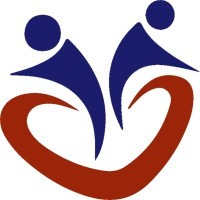Healthy New Year, Healthy Senior: Nutrition Tips for Seniors in January

Strong 8k brings an ultra-HD IPTV experience to your living room and your pocket.
As the New Year begins, it's the perfect time for everyone to focus on setting healthy goals, particularly for seniors who may be looking to enhance their well-being in the coming year. One of the most essential aspects of maintaining good health as we age is proper nutrition. January, with its fresh start and renewed sense of purpose, presents an ideal opportunity for seniors to evaluate their dietary habits and make positive changes that can improve their overall health. Whether you're a caregiver or a senior, it’s important to recognize the vital connection between nutrition and quality of life. In this article, we will explore some key nutrition tips for seniors to follow this January to support a healthier, happier year ahead.
The Importance of Nutrition for Seniors
As we age, our bodies undergo various changes that can affect how we process nutrients, how much energy we need, and how we maintain muscle mass and bone density. A poor diet can contribute to several health problems such as heart disease, diabetes, osteoporosis, and cognitive decline. Proper nutrition is crucial to maintaining strength, energy, and mental clarity. It also helps prevent illness, manages chronic conditions, and supports overall wellness.
1. Start with a Balanced Diet
The foundation of good nutrition for seniors begins with a balanced diet. This means including a variety of food groups in every meal to ensure that the body receives all the necessary nutrients it needs to function optimally. Seniors should aim to consume:
Fruits and Vegetables: These are rich in vitamins, minerals, and fiber. A colorful variety of fruits and vegetables can provide antioxidants that help combat inflammation and oxidative stress, which can be particularly beneficial for seniors dealing with chronic health conditions.
Whole Grains: Whole grains like oats, brown rice, and whole wheat are high in fiber and can help regulate blood sugar levels, maintain digestive health, and reduce the risk of heart disease.
Lean Proteins: Protein is essential for maintaining muscle mass, which naturally declines with age. Seniors should opt for lean sources of protein such as chicken, turkey, tofu, legumes, and fish rich in omega-3 fatty acids like salmon and mackerel.
Dairy or Dairy Alternatives: Calcium is crucial for bone health. Seniors should incorporate dairy products like milk, yogurt, and cheese or calcium-fortified alternatives to maintain strong bones and prevent osteoporosis.
2. Stay Hydrated
Hydration is another key element of a healthy diet for seniors. As we age, our sense of thirst diminishes, which can make it difficult for seniors to recognize when they are dehydrated. However, dehydration can lead to confusion, dizziness, constipation, and other complications. Seniors should aim to drink plenty of water throughout the day, alongside other hydrating fluids like herbal teas and soups.
3. Increase Fiber Intake
Fiber plays an essential role in digestion and can help prevent constipation, a common issue among seniors. Including fiber-rich foods such as fruits, vegetables, beans, legumes, and whole grains can keep the digestive system healthy. High-fiber diets also support heart health by lowering cholesterol levels and stabilizing blood sugar.
4. Boost Brain Health with Nutrients
Cognitive decline is a common concern for seniors, and certain nutrients have been shown to support brain health. Omega-3 fatty acids, commonly found in fatty fish, flaxseeds, and walnuts, are known to support brain function and reduce the risk of Alzheimer’s and dementia. Additionally, antioxidants like vitamins C and E, found in fruits like oranges and berries, help protect the brain from oxidative damage.
5. Watch Salt and Sugar Intake
Excessive salt and sugar intake can lead to several health issues, including high blood pressure, diabetes, and heart disease. Seniors should be mindful of their consumption of processed foods, canned foods, and snacks that are high in sodium and added sugars. Instead, opt for fresh or frozen vegetables, and use herbs and spices to flavor meals.
6. Consider Portion Control
Portion sizes tend to increase with age, especially if seniors have a sedentary lifestyle. Being mindful of portion control can help prevent overeating and support weight management. Using smaller plates, eating slowly, and listening to the body’s natural hunger cues can prevent overconsumption.
7. Add Supplements as Needed
As we age, we may have difficulty absorbing certain nutrients, such as vitamin D and B12. In these cases, supplements can help fill nutritional gaps. However, seniors should always consult with their healthcare provider before starting any new supplements to ensure they are necessary and safe.
8. Encourage Social Eating
Meal times can sometimes feel lonely for seniors, especially if they are living alone or spending time in adult day care settings. Eating with others can increase appetite and enjoyment of meals. Encouraging family members or caregivers to share meals with seniors or involving them in the meal prep process can improve their eating habits and overall well-being.
9. Consult a Professional for Special Diets
Many seniors have specific health conditions that require special diets. For instance, those with diabetes need to monitor their carbohydrate intake, while individuals with heart disease may need to focus on reducing fat and cholesterol. Consulting with a nutritionist or healthcare provider can help create a personalized plan that ensures the best dietary choices for individual health needs.
Conclusion
A healthy diet is one of the most effective ways seniors can improve their quality of life in the New Year. By focusing on nutrient-rich foods, staying hydrated, and making small adjustments to eating habits, seniors can feel stronger, healthier, and more energetic in 2025.
In addition to the right nutrition, seniors may also benefit from assistance in meal planning and preparation, especially if they receive care in adult day care centers or home care environments. Tools such as adult day care software and homecare software can help caregivers manage nutrition plans, monitor food intake, and ensure that seniors are receiving the care and support they need to maintain a healthy lifestyle.
If you're looking for reliable software solutions to streamline adult day care or home care services, consider myEZcare. myEZcare is one of the best providers of adult day care software and homecare software in the USA, helping caregivers and senior care organizations provide better services and improve the lives of seniors.
Note: IndiBlogHub features both user-submitted and editorial content. We do not verify third-party contributions. Read our Disclaimer and Privacy Policyfor details.


